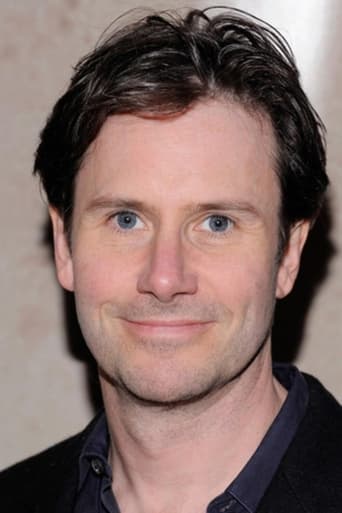BootDigest
Such a frustrating disappointment
Raetsonwe
Redundant and unnecessary.
Zlatica
One of the worst ways to make a cult movie is to set out to make a cult movie.
Scarlet
The film never slows down or bores, plunging from one harrowing sequence to the next.
SnoopyStyle
A group of college friends graduate. Jane (Olivia d'Abo) tells her boyfriend Grover (Josh Hamilton) that she moving to Prague to study rather than joining him in Brooklyn. Chet (Eric Stoltz) has been in school for 10 years. Three months later, Otis (Carlos Jacott)'s worst fear comes true and he moving to Milwaukee. Grover is staying with Max (Chris Eigeman) who is just as aimless but then Otis returns having changed his mind. Clueless Skippy (Jason Wiles) is moving in with Miami (Parker Posey).These people are a little too aimless to be completely compelling. There are some fun dialog. The friendships are interesting. They just need something bigger to deal with. Even artificially, it needs something central to hold these characters together. I keep wondering why these guys don't go off on their own. They need to deal with something or anything. For so many character being so aimless but being aimless together, it would make more sense that this is one night or a few days instead of months and months. Let them be aimless after the graduation party but they have to leave sometimes. Apparently not.
jzappa
Like the subsequent work of Noah Baumbach, there's ample wittiness on the face of this debut, but the grief of lethargy prevails, piercing and lucid. Having spent six years at a stunningly insulated school, I could and still can see ample grounds to relate to the four despairing rapscallions of this brittle slice of life, who graduate from college then go on to spend the next several months on or around campus, doing things as trivial as possible.Josh Hamilton, seen recently in Louis C.K.'s show playing an obnoxious stoner, here expecting to live in Brooklyn with girlfriend Olivia d'Abo, is so agape and livid when she takes a scholarship to Prague that he won't return any of her calls and can only wonder about their past in five deliberately placed scenes, each signaled by a black-and-white snap of her. Otis finds himself unable to fly to grad school in Milwaukee, just one time zone away, and returns to living with his mother. Max, who prefers marking broken glass as such on the floor over sweeping it up, finds nothing better to do than harass Otis, do crosswords and have sex with Parker Posey Any better suggestions? Didn't think so. And Skippy, Posey's actual boyfriend, actually returns to school but can't bring himself to do any of the work. As Miami and Kate, a 16-year-old to whom Max turns next, both highlight on individual occasions that this foursome talks and acts alike, making up dumb quizzes while drinking lots of scotch and beer and overall embracing something similar to a four-man frat house.The synchronicity of drollness and disturbance has grown even more obvious in Baumbach's work since this folksy film. The muttered witticisms that sound designed to restrain, suspend or else displace various cries and screams ultimately seizes the limelight in the great The Squid and the Whale, already unmistakably standing by in his first feature. The polished teasing and shattered nerves of teenagers and young adults appear too close to call, so that clamming up and sounding off, the two things that Baumbach's four male postgraduates do so nimbly, are little more than a traditionalist East Coast upper-class guise of kicking and screaming, meant to bottle up the discharge.The dangers of being refined beyond one's power to handle it are a persistent Baumbach predicament. In the first comprehensive interchange of this Generation X relic, Hamilton exemplifies this pattern by attempting to hold forth expertly about Prague when all he can do is make cursory, lighthearted references to Kundera and Kafka. And in the even more self-critical Squid and the Whale, Jesse Eisenberg's academic pretense is even more prominent, because, like one of these four, he frequently hasn't read the books he pontificates about.Stoltz appears in this filmed chain of thought as a long-standing philosophy major and bartender who's stayed on campus for a decade, by some means a more forward-looking instance of the trouble shaping the four principals but in other ways more practical and focused, since by now he's a father and gladly acknowledges the distinctiveness of being a career student as something more than an evasive standing. Stoltz brings to the movie a sort of slack, theoretical insight that's greatly needed by the foursome. All the women, including, apparently, Hamilton's unseen mother, and even the teenage Kate, seem more even-tempered than the guys, notwithstanding that d'Abo's in psychoanalysis and compulsively plays with her retainer.Baumbach is often footnoted by Wes Anderson. But if Anderson in his prime, as in 1998's Rushmore, has the high-brow egalitarian sharpness of an Ernst Lubitsch, Baumbach's most significant impact is the more lax and investigational Jean Renoir. His predilection for long takes, where he occasionally lets his camera meander while following his actors from a distance, is already remarkably palpable in the very first shot of this dry celluloid soliloquy. Even more pertinent, his strong suits as a director are associated with an ability to entice unforeseen and superb things from his actors, which is no less plain in the final shot. It's a catch-unawares kind of moment suggesting some impression of hopefulness, albeit Baumbach is amply restrained in keeping it in the past.
Alan P
"Kicking and Screaming" shows a considerable degree of self-awareness for a film about college graduation directed by a 25-year-old, but it is still an awkward, self-conscious film that is no more confident than its insecure characters. It was fortunate that in 1995, there were producers out there who believed a movie about depressed upper-middle class white boys had commercial potential, because those producers launched the career of Noah Baumbach, who would go on to make superior films in the next decade. As in his later films, Baumbach seems to take pity on pretentious and tremendously insecure characters while simultaneously taking delight in exposing their weaknesses to the world. But in "Kicking and Screaming," unlike, say, "The Squid and the Whale," Baumbach seems to identify just a little too closely with his young characters and seems to believe that they are less obnoxious than they are. "Kicking and Screaming"'s greatest strength and weakness is how well it captures an aspect of growing up not often captured on film: the resistance to change. Many films deal with characters who gradually change as they come of age, but "Kicking and Screaming" deals with characters who desire on some level to move on past their current selves but are hesitant to do anything about that desire. This also hurts the film, however, since very little changes from beginning to end, and when characters do change at all, they change less than they (or the film) believe. The stagnation would not be a problem if the film were a comedy, but, while the film is full of quirky characters and occasionally funny jokes, it deals with the dullness and depression too honestly to really work as a comedy. When wealthy Max, perhaps the most stagnant of all the characters, puts a "broken glass" sign over a pile of shattered glass rather than cleaning it up, it is good for a laugh, but as the film goes on, we get to know Max well enough that it almost stops being funny. "Kicking and Screaming" is certainly worth seeing for any fans of college-related movies and should probably be required viewing for anyone in their junior or senior years, since it could work as an effective warning against the perils that await graduates without plans. But the film, like its characters, has both too much self-consciousness and too little self-awareness to achieve the levels of comedic or dramatic potential that it hints at.
jamesonnephi
This movie is not great. It is an accurate portrayal, nothing more. All the characters are the clichéd prototypes of college life, all those who are interesting for the first part of school but get gradually more and more annoying as semesters plug on. And eventually, you no longer really want to spend time with them, because they are going no where and doing nothing, and haven't their entire "career" as students. Its just a bunch of high schoolers without boundaries or parents, and it isn't art, or even interesting once the initial humor and novelty wears off and the realization comes: this movie is the people I hate. Because they are pretentious posers unwilling to put forth the dedication necessary to become masters of any craft, much like the director at the time when he made this. Hopefully he will at some point, The Squid and the Whale is at least moving in the right direction.










